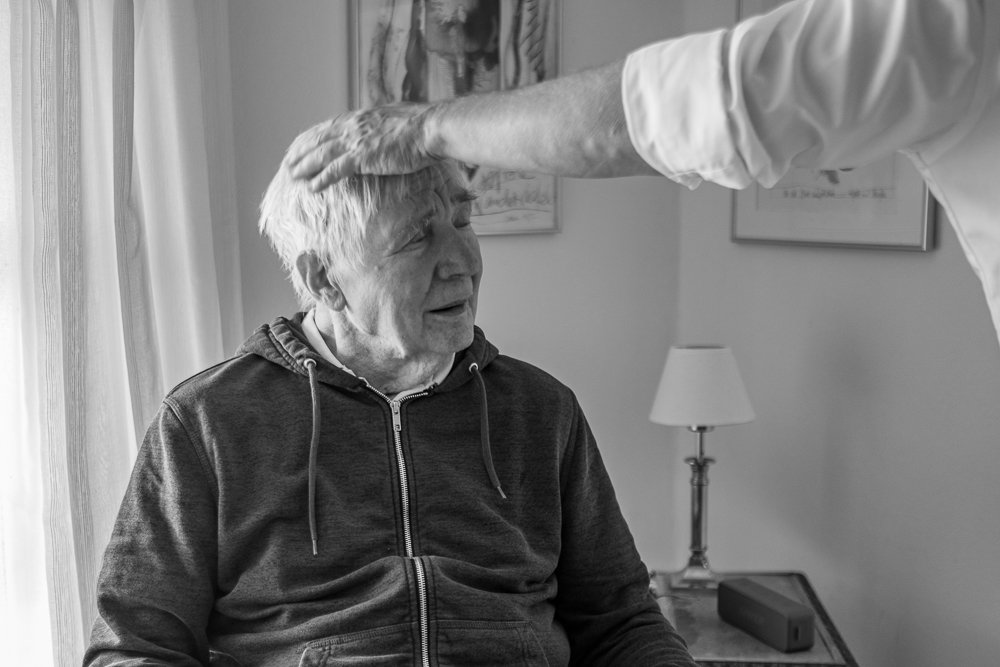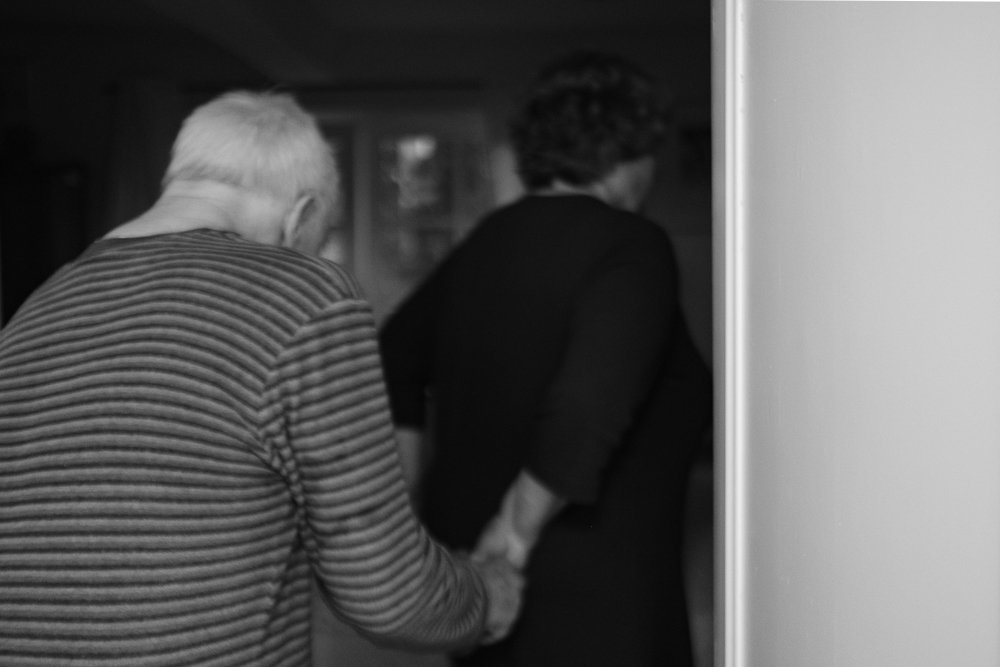The Bitter and the Sweet
Inga and Peter have been married for 60 years.
Peter, 87, an artist, has dementia.
Inga, 79, a psychologist, cares for him.
Peter’s art has changed a lot over the years. His pictures have become more and more diffuse as the fog inside his brain increases. Now he no longer paints, but his artworks surround him in his house by the sea. Many scenes are full of joie de vivre, others are more rebellious, political artworks from when he studied with Paul Wunderlich early in his career. Later he was influenced by Ari Goral-Sternheim, who became his teacher and mentor.
Inga is sad about the loss of the Peter she once fell in love with. And sometimes she might complain about the life that she is missing, consumed by the arduous task of caring for him. But even though she is often at the end of her tether, she can’t bear the thought to sending Peter to a nursing home. So she continues, accepting her fate, constantly in fear of losing the man with whom she has spent her whole life.
Inga and Peter have three sons. The youngest, Daniel, is severly disabled. He cannot speak and is about to go blind. He comes to visit his parents twice a month at weekends. Then Inga cares for two. In what has become an evening ritual, they sit around the dinner table under the lamp. Peter plays the harmonica (very well), Inga sings. Peter’s harmonica playing and Daniel’s honey pie grin fill Inga with joy and make things a little better for a while.
Peter doesn’t say much during the day either. When Sebastian, the oldest son, comes to visit his parents, he sometimes plays the piano at full volume. Then, unexpectedly, Peter starts to speak in a most articulate way. “I want it to be over,” he says. And nobody knows if he means Sebastian playing the piano, or his own life.
In early summer it seemed that Peter‘s end was near. His will to live seemed broken and he stayed in bed the whole time. But he still loved to eat. The doctor changed his medication and before doing so, reminded Inga of Peter’s will, according to which he rejects any measures that prolong his life. “These pills do exactly that,” the doctor said. Inga agreed.
By the height of summer, Peter had come back to life, sitting out on the terrace of their house by the sea. He celebrated his 87th birthday at the coffee table overlooking the pasture where the cows graze beneath the vast Friesian sky, in the middle of the table his birthday cake. Inga picked up a felt ventriloquist’s dummy, her birthday gift to Peter, and spoke to him through the puppet. Peter watched his wife, probably not understanding much of her performance, but smiling like a war child who has just been given a chocolate.















